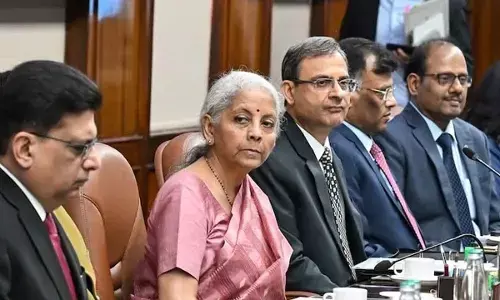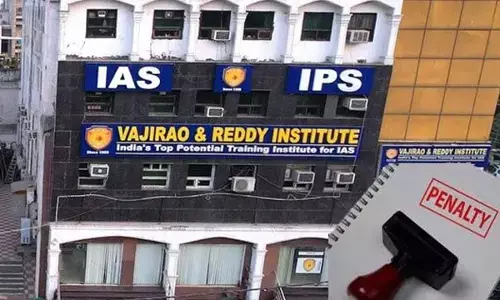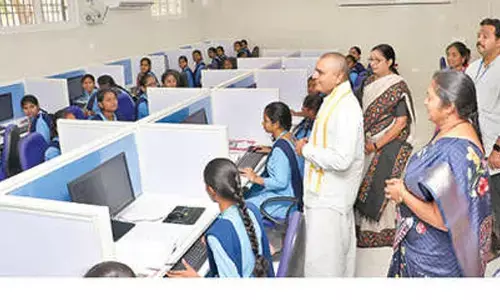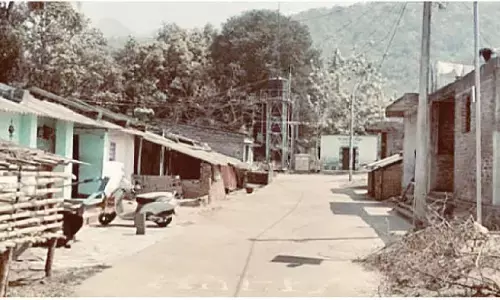Budget 19 reflects Centre's growth vision
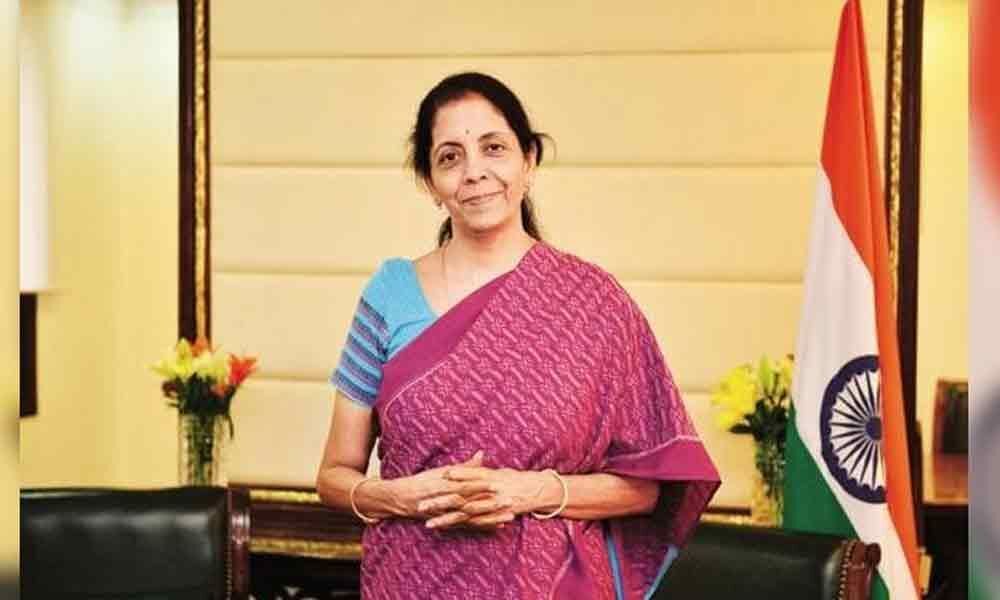
Finance Minister Nirmala Sitharaman has tried to make a fundamental change in the direction of the economy.
Finance Minister Nirmala Sitharaman has tried to make a fundamental change in the direction of the economy. She has increased the customs (or import) duties on a number of finished products such as cashews, tiles, metal fittings and optical fiber cable.
This will make imports of these items expensive. Domestic manufacturers will give a sigh of relief. I would have liked the Minister to have made an across-the-board increase in customs duties on all imports.
Nevertheless, this signifies that the government is willing to withdraw from free trade to support domestic industries. At the same time, she has reduced import duties on certain raw materials which, again, will help domestic manufacturers.
The Minister has increased the customs duty on petroleum products by a nominal Rs 1 per liter. This, again, is a small step in the right direction.
It is necessary to reduce our petrol consumption to reduce our import dependence and also to reduce our carbon emissions. Petroleum is mostly consumed by the better-off sections of the society hence the social impact will also be positive. I would have liked this increase to be of Rs 10 per liter.
The Minister has increased the surcharge on income tax paid by the rich earning more than Rs 2.5 crores per year. This too is a step in the right direction.
The rich have earned larger amounts of monies from this country, and therefore, they must bear a larger share of the burden to raise the country as well.
A word of caution here. Large numbers of high-income individuals have relinquished their Indian citizenship and acquired citizenship of countries where the rates of income tax are low.
The Minister should keep an eye on this tendency and scale back this measure if larger numbers of rich begin to migrate out of India.
The fourth positive aspect of the Budget is an implicit focus on the services sector as the future engine of growth. The Minister has stressed language training.
Knowledge of foreign languages will open a huge market for our services. For example, an Indian translator could take up a contract to translate a novel or a manual from Chinese into German language. She has given a push to sunrise services like Artificial Intelligence, Big Data Analysis and Robotics.
She has planned to develop 17 iconic tourism sites to international standards. She has planned to obtain Geographical Indicator status for traditional crafts so that they are patented and protected.
These areas have the potential of creating jobs and the Minister must be congratulated for this focus.
Now the hard part. The first area of concern is the continued stress on reducing the fiscal deficit which she has aimed to bring to 3.3 percent in 2019-20 from 3.4 percent in the previous year.
Data show that the reduction in fiscal deficit by the NDA1 government has been accompanied with an increase in Revenue Deficit which is a measure of government consumption.
The consumption expenditures of the government have increased in tandem with a reduction in total expenditures.
This means that the reduction has been obtained only by a reduction in capital expenditures. This is exactly opposite of what is needed. Putting Indian economy on the fast track requires increase government expenditures in infrastructure and new age science. China is making artificial sun.
We are nowhere in the reckoning. Therefore, the Minister should have made a roadmap to reduce the revenue deficit and openly accept an increase in fiscal deficit for financing increased capital expenditures.
NDA1 has lost the last 5 years in the false pursuit of reduction of fiscal deficit. We must avoid losing the next five years pursuing the same false goal.
The second area of concern is the Medium, Small and Micro Enterprises (MSMEs). GST has hit them hard on three counts. One, it has provided free interstate movement of goods which is mostly undertaken by large industries.
In the process, GST has taken away the natural protection that MSMEs previously had from less entry of goods from large industries located in other States. Two, the compliance burden has pulled the MSMEs down.
Three, the composition scheme does not provide passing on of the GST paid on the raw materials by MSMEs. This has resulted in large industries giving preference to purchases from large suppliers who can pass on the GST paid by them on the raw materials to their buyers.
The Minister has failed to even recognise this problem, let alone try to solve it. As a result, I expect the MSMEs to continue to lose ground to large industries. One consequence of this will be reduction in jobs that are most created by MSMEs.
The third area of concern is the Public Sector. The Minister has provided a huge amount of Rs 70,000 crores to be given to Public Sector Banks (PSBs) in order to recapitalise them.
This money will ultimately support the corrupt and inefficient ways of the PSBs. She has also made only a lukewarm reference to the desire to privatise Air India and a few other Public Sector Undertakings (PSUs).
The Minister is unable to shake off the allure of the bureaucracy to hold on to the many goodies like free travels, appointment of relatives, contracts to family members and, of course, grease money that are provided by the PSBs and PSUs.
The need was to take a bold decision to privatise not only all non-strategic PSUs but also all PSBs. I reckon we could generate a huge revenue maybe as much as Rs 200 lakh crores —which is equal to the entire annual budget of the Central government.
The NDA2 was in a position to implement such a measure that would be opposed by the corrupt PSE and PSB bureaucracies. This opportunity has been lost.
The fourth area of concern is the welfare of the common man including unemployed and farmers. The Budget has provided no relief to the farmers.
I do not blame the Minister. She could not have provided any relief because agriculture is a sunset sector across the world. There is no chance of employment generation also given the advances in automation and robotics.
The governments — both Central and State — have implicitly accepted this reality by instituting pension schemes for unemployed, small farmers and elderly.
These welfare schemes, however, actually provide income to the welfare bureaucracy. The need was to scrap all these schemes and institute a Universal Basic Income Scheme so that the money spent by the government actually reached the common man instead of being appropriated by the welfare bureaucracy.
These unfulfilled hopes notwithstanding, it is a good budget because it makes a basic shift from free trade to protectionism; and from manufacturing to the services sector.
(The views expressed are personal)


